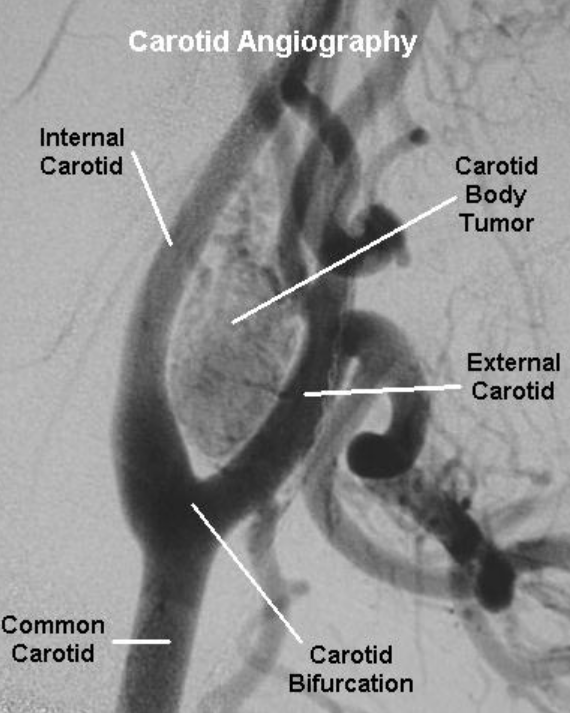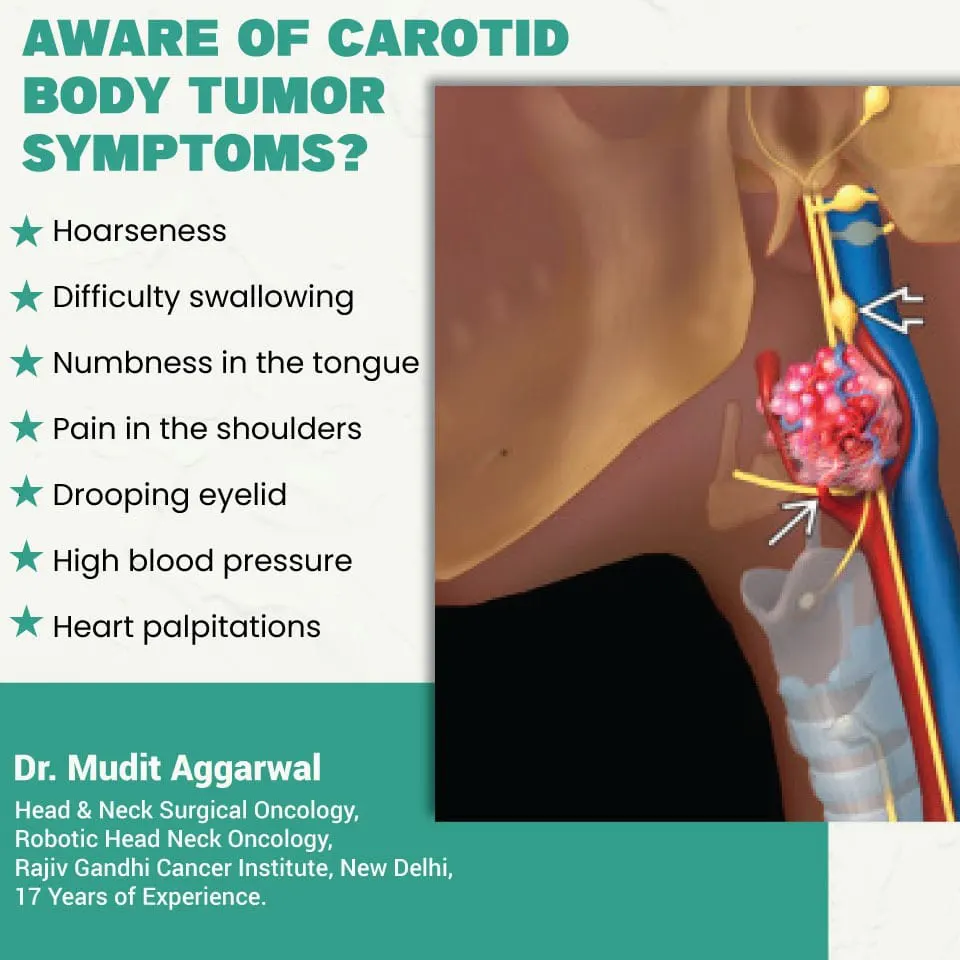What Is a Carotid Body Tumor?
A carotid body tumor is a rare, usually benign (non-cancerous) growth that develops at the bifurcation of the carotid artery—where the artery splits in the neck to supply blood to the brain. Though slow-growing and typically painless, the tumor’s close location to major blood vessels and nerves means it must be handled with expert precision.
Patients may notice:
- A painless, firm mass in the upper neck
- Subtle changes in voice, swallowing, or throat sensation if the tumor presses on nearby structures
- Occasionally, pulsation or noise near the mass due to its rich blood supply



Diagnostic Work-Up: Evaluating the Tumor Thoroughly
- Blood tests and urine tests to rule out rare hormone-secreting tumors (such as paragangliomas that release catecholamines)
- Ankle-Brachial Index (ABI) to compare leg and arm blood pressure
- Duplex ultrasound to identify blood flow and mass characteristics
- CT angiography or MRI/MRA to map the anatomy and evaluate the relationship between the tumor, carotid arteries, and surrounding structures
- Assessment of surgical risk factors and discussion of medical history during your clinic visit
Treatment: Surgical Removal by Vascular Experts
Surgical excision is the definitive and curative treatment for carotid body tumors. At Vascular Clinic, our vascular surgeons are highly experienced in the delicate removal of these tumors.
Our approach includes:
- Precise neck incision to access the carotid bifurcation
- Careful dissection around the tumor while preserving the carotid arteries and surrounding cranial nerves
- Complete removal of the tumor without the need for routine preoperative embolization
- Use of specialized vascular techniques to control bleeding and protect nearby structures



What to Expect
- Detailed imaging and labs during initial work-up
- Meet with your surgeon to review findings and surgical plan
- Thorough explanation of risks, benefits, and recovery expectations
- Performed in a hospital setting under general anesthesia
- Neck incision aligned with natural skin lines for cosmetic discretion
- Most patients require only an overnight stay for observation
- Careful postoperative monitoring of voice, tongue, and shoulder function
- Return to normal activities in a few days to a week, depending on extent of dissection
- Periodic follow-up clinic visits to ensure healing and monitor for recurrence (rare)
Frequently Asked Questions
Are carotid body tumors cancerous?
Most are benign and non-cancerous. Rarely, they may have malignant potential, which is why early diagnosis and treatment are important.
Do I need a biopsy before surgery?
No. Biopsy is typically not performed, as imaging and clinical features are sufficient for diagnosis—and biopsy may increase the risk of bleeding.
What are the risks of surgery?
Risks include bleeding and potential injury to nearby cranial nerves (affecting voice, tongue, or shoulder). However, our team takes every precaution to preserve nerve function and minimize complications.
Will the tumor come back?
Recurrence is rare when the tumor is completely removed. We provide ongoing follow-up to ensure long-term success.
Why Choose Vascular Clinic?
- Board-Certified Vascular Surgeons with Subspecialty Experience
- Complete Diagnostic Work-Up Onsite
- Expertise in Complex Vascular and Cranial Nerve Preservation
- No Overuse of Embolization – Direct, Effective Surgery
- Compassionate, One-on-One Pre- and Postoperative Care




